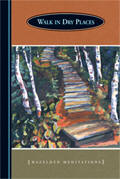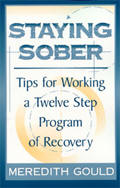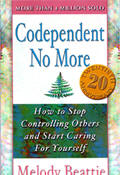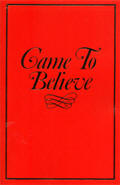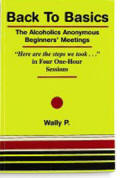

MRP Site Navigation
MRP Home Page
MN 12 Step Groups
MN Treatment Centers
National AA Intergroups
National NA Intergroups
National Al-Anon Intergroups
Other Recovery Groups
AA History
Recovery Events
Links
Alcoholism
Links
Codependency Links
Commercial
Sites
Drug Addiction
Links
Eating Disorder Links
Gambling
Addiction Links
Gay
& Lesbian Links
Mental
& Emotional Health
Religion
& Spiritual Links
Sexual Addiction Links
Women's
Issues
Bookstore
Reading
Room
AA Literature
Recovery Articles
Personal
Stories
People In Recovery
Graphics
Supporting the Minnesota Recovery Page
Contact Us
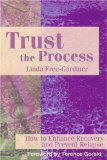
Trust the Process:
How to Enhance Recovery
and Prevent Relapse
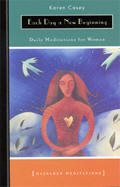
Each Day a New Beginning - Daily Meditations
for Women
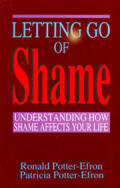
Letting Go of Shame
Understanding
How Shame Affects Your Life
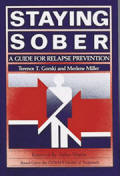
Staying Sober
A Guide for Relapse Prevention
A.A.’s Sermon on the Mount
One of the Three Parts of the Bible Early AA's Considered Essential
Dick B. © 1996 - used by permission
|
The “Sermon”—What it is, and What People Say About it When I was a kid, my Uncle Gene used to say that his “religion” was the “Sermon on the Mount.” I know that Uncle Gene didn’t belong to a church and never attended a church service except an Easter Sunrise Service once a year. He never mentioned the Bible, and I’m pretty sure he never read it. I’m not sure he had any idea that Jesus was connected with the sermon. At least he never mentioned Jesus. Yet he thought the “Sermon on the Mount” was the cat’s pajamas. My first grand-sponsor in A.A. used to suggest that the men he sponsored read “the Sermon on the Mount.” Turned out, he meant Emmet Fox’s book—something I learned when I saw that several of the men had Fox’s book and said it had been recommended by my grand-sponsor. Later, at our Wednesday night meeting, this man said the “Sermon on the Mount” and the Bible were very special in A.A. But he later confided to me that he had never read the Bible. On several other occasions, he warned men that AAs who read the Bible got drunk and that they should have been reading the Big Book and nothing else. My own first sponsor told me the same things. Together, these men tried to stop me from taking my sponsees to a Bible fellowship. Both talked lots about their “higher power,” a little about Fox’s “sermon,” but never mentioned Jesus Christ in my presence. I had an A.A. friend come up to me one day and ask me where the “Lord’s Prayer” came from. He wanted to know where he could find it. Of course, he had been saying it at the end of every A.A. meeting every day for months and months. He had expressed interest in going to a Bible fellowship, and it’s just possible he put together the idea that the Lord’s Prayer and the Bible were somehow related. As to my own knowledge about the “sermon,” I have to confess that, even though my mother studied the Bible daily, wrote me about it frequently, and used to read to me from the Psalms when I was ill, I don’t think I knew very much about the sermon. I think I believed that Jesus had delivered the talk to his disciples on a mountain. Also, I had heard stuff about the “Beatitudes,” the “Lord’s Prayer,” “turn the other cheek,” “love your enemies,” and the “Golden Rule.” But I had never heard of, or used, a Bible Concordance. And I am sure I couldn’t have found those verses or sayings in the Bible to save my soul! Early AAs Heard about it All the Time The Sermon on the Mount had a different history in early A.A. Both Bill Wilson and Dr. Bob said several times that Jesus’ sermon on the mount contained the underlying philosophy of A.A. As A.A.’s own literature reports: “He [Dr. Bob] cited the Sermon on the Mount as containing the underlying spiritual philosophy of A.A.” (DR. BOB and the Good Oldtimers. NY: Alcoholics Anonymous World Services, Inc., 1980, p. 228). Dr. Bob had no hesitancy about reading from the Bible and reading from it this sermon at meetings. An A.A. Grapevine article states that at a meeting led by Dr. Bob, Dr. Bob “put his foot on the rung of a dining-room chair, identified himself as an alcoholic, and began reading the Sermon on the Mount” (DR. BOB, supra, p. 218). Dr. Bob pointed out that there were no twelve steps at the beginning, that “our stories didn’t amount to anything to speak of,” and that they [A.A.’s “older ones”] were “convinced that the answer to their problems was in the Good Book” (DR. BOB, supra, p. 96). Clarence Snyder pointed out as to Dr. Bob: “If someone asked him a question about the program, his usual response was: ‘What does it say in the Good Book?’” (DR. BOB, supra, p. 144). Bob said quite clearly: “I didn’t write the Twelve Steps. I had nothing to do with the writing of them” but that “We already had the basic ideas, though not in terse and tangible form. We got them as a result of our study of the Good Book” (DR. BOB, supra, pp. 96-97). He also said the older members were convinced that the answer to their problems was in the Good Good.” Dr. Bob stressed over and over that the “the parts we found absolutely essential were” the Book of James, the Sermon on the Mount, and 1 Corinthians 13 (e.g. DR. BOB, supra, p. 96). In the Foreword he wrote to Dick B., The Good Book and The Big Book, Dr. Bob’s son “Smitty” pointed to the importance of James, the Sermon, and Corinthians; and I heard Smitty repeat his statement at several large A.A. history meetings, including one at A.A.’s San Diego International Convention in 1995. Dr. Bob’s sponsee Clarence Snyder, got sober in February of 1938 and later became the AA with the greatest amount of sobriety. Clarence often echoed Dr. Bob’s words about the Bible and the three essential parts. Also, in a talk given to AAs in Glenarden, Maryland, on August 8, 1981, Clarence said: “This program emanates from the Sermon on the Mount and the Book of James. If you want to know where this program came from, read the fifth, sixth, seventh chapter of Matthew. Study it over and over, and you’ll see the whole program in there” (Glen Cove, NY: Glenn K. Audio Tape #2451). Of course, the Lord’s Prayer itself can be found in several of the Gospels and particularly in Jesus’ sermon at Matthew 6:9-13). This prayer from the sermon was originally and frequently recited by the A.A. pioneers at the close of every meeting (e.g.: DR. BOB, supra, pp. 141, 148, 183, 261)—just as it was in the meetings of the Oxford Group, from which A.A. derived. Bill Wilson actually quoted from two parts of the sermon in the Big Book—though he never indicated his source. He borrowed the phrase “Thy will be done” [from Matthew 6:10] and partly quoted “Thou shalt love thy neighbor as thyself” from Matthew 5:43 (also found in many other places in the Bible—e.g.: Leviticus 19:18; Romans 13:9; Galatians 5:14; James 2:8). Dr. Bob read and circulated among early AAs and their families a good many materials discussing every facet of the sermon—e.g.: Studies in the Sermon on the Mount by Oswald Chambers (London: Simpkin, Marshall, Ltd., n.d.); The Christ of the Mount: A Working Philosophy of Life by E. Stanley Jones (NY: The Abingdon Press, 1931); The Sermon on the Mount by Emmet Fox (NY: Harper & Row, 1934); The Lord’s Prayer and Other Talks on Prayer from The Camps Farthest Out by Glenn Clark (MN: Macalester Park Publishing Co., 1932) and I Will Lift Up Mine Eyes by Glenn Clark (NY: Harper & Brothers, 1937). See Dick B. Dr. Bob and His Library, 3rd ed. (Kihei, HI: Paradise Research Publications, Inc., 1998); DR. BOB and the Good Oldtimers, supra, pp.310-311. Many Oxford Group books discussed the sermon as did many of the daily devotionals the early AAs used—devotionals such as The Upper Room and The Runner’s Bible. See DR. BOB, supra, pp. 71, 139, 151, 178, 220, 311 and, as to The Runner’s Bible, DR. BOB, supra, p. 293; RHS. NY: A.A. Grapevine, Inc., 1951, p. 34; Dick B., Good Morning, 2d ed., Dr. Bob and His Library, 3rd ed.,The Books Early AAs Read for Spiritual Growth, 7th ed. A Study of the Actual Sermon on the Mount AAs Read (Matthew Chapters 5-7) This discussion will not deal with a particular book or commentary on Matthew chapters 5-7. It will focus on the verses in the Sermon on the Mount itself. For this Sermon, which Jesus delivered, was not the property of some present-day commentator or writer. The fact that Dr. Bob read the Matthew chapters themselves, as well as many interpretations of them, verifies the A.A. belief that the Sermon was one of the principles comprising Athe common property of mankind, which Bill Wilson said the AAs had borrowed. And here are some major points that appear to have found their way from the Sermon into the basic ideas of the Big Book. The points were, of course, in the sermon itself. In addition, the pioneers read many books and articles on and about the sermon which are thoroughly documented in the author's title, The Good Book and The Big Book: A.A.'s Roots in the Bible. Those items further illustrate some of the points made in the sermon and that might have found their way into A.A. The Lord's Prayer - Matthew 6:9-13 Oxford Group meetings closed with the Lord's Prayer in New York and in Akron. In early A.A., the alcoholics also closed meetings with the Lord's Prayer. Moreover, I have personally attended at least two thousand A.A. meetings, and almost every one has closed with the Lord's Prayer. At the 1990 International A.A. Conference in Seattle, which was a first for me, some 50,000 members of Alcoholics Anonymous joined in closing their meetings with the Lord's Prayer. The question here concerns what parts, if any, of the Lord's Prayer found their way into the Big Book, Twelve Steps, A.A. Slogans, and the A.A. fellowship; and we hasten to remind the reader that the prayer is part of the Sermon on the Mount. Here are the verses of the Lord's Prayer (King James Version) as found in Matt. 6:9-13. Jesus instructed the Judaeans, After this manner therefore pray ye: Our Father which art in heaven, Hallowed be thy name. Thy kingdom come. Thy will be done in earth, as it is in heaven. Give us this day our daily bread. And forgive us our debts, as we forgive our debtors. And lead
us not into temptation, but deliver us from evil: Dr. Bob studied specific commentaries on the Sermon by Oswald Chambers, Glenn Clark, Emmet Fox, and E. Stanley Jones. And these writers extracted a good many teachings, prayer guides, and theological ideas from Lord's Prayer verses in the Sermon. But there are a few concepts and phrases in the Lord's Prayer itself which either epitomize A.A. thinking or can be found in its language whether the A.A. traces came from the Lord's Prayer or from other portions of the Bible. For example, the Big Book uses the word Father when referring to the Creator Yahweh, our God; and the context shows that this usage and name came from the Bible. The Oxford Group also used the term Father, among other names, when referring to God. The concept and expression of God as Father is not confined to the Sermon on the Mount. It can be found in many other parts of the New Testament. But AAs have given the Our Father prayer a special place in their meetings. Thus the Lord's Prayer seems the likely source of their use of the word Father. The phrase Thy will be done is directly quoted, or is the specific subject of reference, in the Big Book several times (Big Book, 4th ed., pp. 63, 67, 76, 85, 88). It underlies A.A.'s contrast between self-will and God's will. The Oxford Group stressed, as do A.A.'s Third and Seventh Step prayers, that there must be a decision to do God's will and surrender to His will. These ideas were also symbolized in the A.A. prayer's Thy will be done. Finally, Forgive us our debts or trespasses certainly states that God can and will forgive; and these concepts can be found in the Big Book, whether they came from the Lord's Prayer or from other important Biblical sources such as the Book of James. |
|
This discussion will not deal with a particular book or commentary on Matthew chapters 5-7. It will focus on the verses in the Sermon on the Mount itself. For this Sermon, which Jesus delivered, was not the property of some present-day commentator or writer. The fact that Dr. Bob read the Matthew chapters themselves, as well as many interpretations of them, verifies the A.A. belief that the Sermon was one of the principles comprising the common property of mankind, which Bill Wilson said the AAs had borrowed. And here are some major points that appear to have found their way from the Sermon into the basic ideas of the Big Book. The points were, of course, in the sermon itself. In addition, the pioneers read many books and articles on and about the sermon which are thoroughly documented in the author's title, The Good Book and The Big Book: A.A.'s Roots in the Bible. Those items further illustrate some of the points made in the sermon and that might have found their way into A.A. The Lord's Prayer
Oxford Group meetings closed with the Lord's Prayer in New York and in Akron. In early A.A., the alcoholics also closed meetings with the Lord's Prayer. Moreover, I have personally attended at least two thousand A.A. meetings, and almost every one has closed with the Lord's Prayer. At the 1990 International A.A. Conference in Seattle, which was a first for me, some 50,000 members of Alcoholics Anonymous joined in closing their meetings with the Lord's Prayer. The question here concerns what parts, if any, of the Lord's Prayer found their way into the Big Book, Twelve Steps, A.A. Slogans, and the A.A. fellowship; and we hasten to remind the reader that the prayer is part of the Sermon on the Mount. Here are the verses of the Lord's Prayer (King James Version) as found in Matt. 6:9-13. Jesus instructed the Judaeans, After this manner therefore pray ye:
Dr. Bob studied specific commentaries on the Sermon by Oswald Chambers, Glenn Clark, Emmet Fox, and E. Stanley Jones. And these writers extracted a good many teachings, prayer guides, and theological ideas from Lord's Prayer verses in the Sermon. But there are a few concepts and phrases in the Lord's Prayer itself which either epitomize A.A. thinking or can be found in its language whether the A.A. traces came from the Lord's Prayer or from other portions of the Bible. For example, the Big Book uses the word Father when referring to the Creator Yahweh, our God; and the context shows that this usage and name came from the Bible. The Oxford Group also used the term Father, among other names, when referring to God. The concept and expression of God as Father is not confined to the Sermon on the Mount. It can be found in many other parts of the New Testament. But AAs have given the Our Father prayer a special place in their meetings. Thus the Lord's Prayer seems the likely source of their use of the word Father. The phrase Thy will be done is directly quoted, or is the specific subject of reference, in the Big Book several times (Big Book, 4th ed., pp. 63, 67, 76, 85, 88). It underlies A.A.'s contrast between self-will and God's will. The Oxford Group stressed, as do A.A.'s Third and Seventh Step prayers, that there must be a decision to do God's will and surrender to His will. These ideas were also symbolized in the A.A. prayer's Thy will be done. Finally, Forgive us our debts or trespasses certainly states that God can and will forgive; and these concepts can be found in the Big Book, whether they came from the Lord's Prayer or from other important Biblical sources such as the Book of James. The Full Sermon on the Mount: Matthew Chapters 5-7 Dr. Bob studied, and circulated among early AAs, an E. Stanley Jones book, The Christ of the Mount (Nashville: Abingdon, 1931; Festival ed., 1985, pp. 36-37) which outlined the Sermon's contents in this fashion: 1. The goal of life: To be perfect or complete as the Father in heaven is perfect or complete (5:48); with twenty-seven marks of this perfect life (5:1-47). [Jones wrote of these verses:] The perfect life consists in being poor in spirit, in mourning, in being meek, in hungering and thirsting after righteousness, in being merciful, pure in heart, in being a peacemaker, persecuted for righteousness sake and yet rejoicing and being exceeding glad, in being the salt of the earth, the light of the world, having a righteousness that exceeds, in being devoid of anger with the brother, using no contemptuous words, allowing no one to hold anything against one, having the spirit of quick agreement, no inward lustful thinking, relentless against anything that offends against the highest, right relations in the home life, truth in speech and attitude, turning the other cheek, giving the cloak also, going the second mile, giving to those who ask and from those who would borrow turning not away, loving even one's enemies, praying for those that persecute (pp. 50-51). 2. A diagnosis of the reason why men do not reach or move on to that goal: Divided personality (6:1-6; 7:1-6). 3. The Divine offer of an adequate moral and spiritual re-enforcement so that men can move on to that goal: The Holy Spirit to them that ask him (7:7-11). 4. After making the Divine offer he gathers up and emphasizes in two sentences our part in reaching that goal. Toward others we are to do unto others as we would that they should do unto us (7:12); toward ourselves we are to lose ourselves by entering the straight gate (7:13). 5. The test of whether we are moving on to that goal, or whether this Divine Life is operative within us: By their fruits (7:15-23). 6. The survival value of this new life and the lack of survival value of life lived in any other way: The house founded on rock and the house founded on sand (7:24-27). Our own discussion will review Jesus' Sermon, chapter by chapter. It will pinpoint some principal thoughts that Dr. Bob and Bill may have had in mind when they each said that the sermon on the mount contained the underlying philosophy of Alcoholics Anonymous. Here follows our review: Matthew Chapter 5 1. The Beatitudes. The Beatitudes are found in Matt. 5:3-11. The word beatitudes refers to the first word Blessed in each of these verses. Merriam Webster's says blessed means enjoying the bliss of heaven. The word in the Greek New Testament from which blessed was translated means, happy, according Biblical scholar Ethelbert Bullinger. Vine's Expository Dictionary of Old and New Testament Words explains the word Blessed as follows: In the beatitudes the Lord indicates not only the characters that are blessed, but the nature of that which is the highest good. Dr. Bob's wife Anne Smith described the Beatitudes in the Sermon on the Mount as the Christ-like virtues to be cultivated (Dick B., Anne Smith's Journal, p. 135). The beatitude verses can be found at the very beginning of Jesus's sermon and read as follows:
Italicized below are Webster's definitions for the key words in each beatitude verse, with quotes also from the King James Version, which was the version Dr. Bob and early AAs most used. As the verses appear in the King James, they state: Blessed are:
Did Dr. Bob, Anne, Bill, or Henrietta Seiberling study and draw specifically on these beatitude verses as they put together A.A.'s recovery program? The author can neither provide nor document any answer. But there are some ideas common to A.A.'s spiritual principles in the beatitudes as you see them expressed above. These are:
The foregoing are Twelve Step ideas that can be found in the Beatitudes; and A.A. founders probably saw them there as well, and they can most certainly be found in the Big Book humility, comforting others, patience and tolerance, Thy will be done, compassion, amends, peacemaking, acting on the cardinal principles of Jesus Christ as virtues to be cultivated. 2. Letting your light shine. Matt. 5:13-16 suggest glorifying your Heavenly Father by letting others see your good works. That is, Letting your light shine does not mean glorifying yourself, but rather glorifying God by letting others see your spiritual walk in action to see the immediate results of your surrender to the Master. These ideas may be reflected in the Big Book's statement: Our real purpose is to fit ourselves to be of maximum service to God. . . . (p. 77). 3. Obeying the Ten Commandments. In Matt. 5:17-21, Jesus reiterates the importance of obeying the law and the prophets, specifically referring to Exod. 20:13 (Thou shalt not kill), but obviously referring as well to the other important commandments such as having no other god but Yahweh (Exod. 20:2-3), worshiping no other god (Exod. 20:4-5), eschewing adultery (Exod. 20:14), refraining from stealing (Exod. 20:15), and so on. And even though some of these commandments may have fallen between the cracks in today's A.A., they very clearly governed the moral standards of early A.A. that Dr. Bob and the Akron AAs embraced. The Ten Commandments were part of early A.A. pamphlets and literature, and (for example) Dr. Bob and the Akron AAs would have nothing to do with a man who was committing adultery. 4. The Law of Love in action. In Matt. 5:17-47, Jesus confirms that the Law of Love fulfills the Old Testament Law. He rejects anger without cause, unresolved wrongs to a brother, quibbling with an adversary, lust and impurity, adultery, retaliation, and hatred of an enemy. The author's title The Oxford Group & Alcoholics Anonymous covers many of these ideas as roots of A.A. principles. And the foregoing verses in Matthew may very well have influenced A.A. language about: (a) Overcoming resentments—Matthew 5:22: A. . .I say unto you, That whosoever is angry with his brother without a cause shall be in danger of the judgment. . .” See Alcoholics Anonymous 4th ed., p. 67: “God save me from being angry.” (b) Making restitution—Matthew 5:23-24: “ATherefore if thou bring thy gift before the altar, and there rememberest that thy brother hath ought against thee; Leave there thy gift before the altar, and go thy way; first be reconciled to thy brother, and then come and offer thy gift; See DR. BOB, supra, p. 308: “We learned what was meant when Christ said, ‘Therefore if thou bring thy gift to the altar. . . “ (c) Avoidance of retaliation for wrongdoing by others—Matthew 5:38-39: “AYe have heard that it hath been said, An eye for an eye, and a tooth for a tooth: But I say unto you, That ye resist not evil: but whosoever shall smite thee on thy right cheek, turn to him the other also; See Alcoholics Anonymous, 4th ed., p. 67: “Though we did not like their symptoms and the way these disturbed us. . .We avoid retaliation or argument. . . at least God will show us how to take a kindly and tolerant view of each and every one.”. (d) Making peace with our enemies—Matthew 5:43-44: “AYe have heard that it hath been said, Thou shalt love thy neighbor, and hate thine enemy. But I say unto you. Love your enemies, bless them that curse you, do good to them that hate you, and pray for them which despitefully use you, and persecute you.” See Alcoholics Anonymous, 4th ed., pp. 67, 70: “When a person offended we said to ourselves, “This is a sick man. How can I be helpful to him? . . . Thy will be done. . . . We have begun to learn tolerance, patience, and good will toward all men, even our enemies, for we look on them as sick people.” Matthew Chapter 6 1. Anonymity. Matt. 6:1-8, 16-18—urging almsgiving in secret, praying in secret, fasting in secret, and avoiding vain repetitions, and hypocrisy. These verses could very possibly have played a role in the development of A.A.'s spiritual principle of anonymity. Jesus said, your Father knoweth what things ye have need of, before ye ask him and thy Father, which seeth in secret shall reward thee openly. The vain practices which Jesus condemned were acts focusing on self-importance, inflating the ego, and manifesting self-centeredness--something A.A. disdains. Making a public display of gift-giving, praying, fasting, and repetitive prayers was something Jesus criticized because of the pointless hypocrisy of showing off feigned piety to men whereas God was it object and already knew the heart of the hypocrite. See Alcoholics Anonymous, 4th ed., p. 62: “Selfishness—self-centeredness! That, we think, is the root of our troubles. . . . Above everything, we alcoholics must be rid of this selfishness.” Early Oxford Group and A.A. literature often spoke of God-sufficiency versus self-sufficiency, and God-centeredness versus self-centeredness. We have located no direct tie between Jesus’ teachings of Jesus on anonymity and A.A.'s Traditions on this principle. But the concepts are parallel; and The Runner's Bible and other A.A. biblical sources that AAs studied do discuss their significance at some length. Also, see Alcoholics Anonymous, 4th ed., pp. 76, 77, 93: “Our real purpose is to fit ourselves to be of maximum service to God and the people around us. . . . We will lose interest in selfish things and gain interest in our fellows. Self-seeking will slip away. . . . To be vital, faith must be accompanied by self-sacrifice and unselfish, constructive action.” 2. Forgiveness. Matt. 6:14-15 refer to forgiving men their trespasses; and Emmet Fox's forceful writing about these verses exemplifies the A.A. amends process. Fox said:
There is no assurance that Fox's writing on the sermon's forgiveness point specifically influenced the Big Book's emphasis on forgiveness. To be sure, at least two A.A. history writers have claimed that Fox's writings did influence Bill Wilson. However, other books that were read by early AAs books by such authors as Henry Drummond, Glenn Clark, E. Stanley Jones, and Harry Emerson Fosdick used language similar to that used by Fox in his discussion of forgiveness of enemies. And Jesus' sermon on the mount is not the only place in the New Testament where forgiveness is stressed. Thus, after, and even though, Christ had accomplished remission of past sins of believers, Paul wrote:
See also the following verse, a favorite often quoted and used by Henrietta Seiberling the well known early A.A. teacher who was often thought of as an A.A. founder:
In any event, the Big Book, Fourth Edition, states at page 77:
3. The sunlight of the Spirit? Speaking of the futility and unhappiness in a life which includes deep resentment, the Big Book states: when harboring such feelings we shut ourselves off from the sunlight of the Spirit. One often hears this sunlight expression quoted in A.A. meetings. Yet its origins seem unreported and undocumented. Anne Smith referred frequently in her journal to the verses in 1 John which had to do with fellowship with God and walking in the light as God is light. So did A.A.'s Oxford Group sources. And the following are the most frequently quoted verses from 1 John having to do with God as light and the importance of walking in the light (rather than walking in darkness) in order to have fellowship with Him:
Though this particular discussion is concerned with the Sermon on the Mount, we have mentioned also the foregoing verses from 1 John 1:3-7 (having to do with walking in God's light as against opposed to walking in darkness). For very possibly those ideas in 1 John, together with the following verses in the Sermon, may have given rise to Bill's references to the alcoholic's being blocked from the sunlight of the Spirit when he or she dwells in such dark realms as excessive anger. Matt. 6:22-24 (in the Sermon) state:
4. Seek ye first the kingdom of God. Matt. 6:24-34 seem to have had tremendous influence on A.A. The substance of these verses is that man will be taken care of when he seeks first the kingdom of God and His righteousness. Verse 33 says:
Dr. Bob specifically explained the origin of our A.A. slogans Easy Does It and First Things First. (DR. BOB and the Good Oldtimers, pp 135, 144). When he was asked the meaning of First Things First, Dr. Bob replied. Seek ye first the kingdom of God and His righteousness, and all these things shall be added unto you. He told his sponsee Clarence Snyder that First Things First came from Matt. 6:33 in the Sermon on the Mount. And this verse was widely quoted in the books that Dr. Bob and the Akron AAs read and recommended (Dick B., The Good Book and The Big Book, p. 125, n.119; That Amazing Grace, pp. 30, 38). On page 60, the Big Book states the A.A. solution for relief from alcoholism: God could and would if He were sought. (italics added). This concept is one of seeking results by reliance on God instead of reliance on self. And this is a bedrock idea in the Big Book. See Alcoholics Anonymous, 4th ed., pp. 11, 14, 25, 28, 43, 52-53, 57, 62. In view of Dr. Bob's explanations as to the origin of First Things First, the Big Book's emphasis on seeking very likely came from the seeking the kingdom of God first idea in Matt. 6:33. According to Dr. Bob, the slogans Easy Does It and One day at a time came from the next verse Matthew 6:34. See Dick B., The Good Book and The Big Book, pp. 87-88, and other citations therein. The Big Book glowingly endorses “three little mottoes” which are “First Things First; Live and Let Live; Easy Does It” (Alcoholics Anonymous, 4th ed., p. 135). Two of the three very clearly have their roots in Matthew 6:24-34. Matthew Chapter 7 1. Taking your own inventory. Much of A.A.'s Fourth, Ninth, Tenth, and Eleventh Step actions involve looking for your own part, for your own fault in troublesome matters. This self-examination process (as part of the house-cleaning and life-changing process in the Steps) was expected to result in that which, in Appendix II of the Fourth Edition of the Big Book, became described as the personality change sufficient to bring about recovery from alcoholism (Big Book, p. 567). Matt. 7:3-5 states:
These verses from Matthew were frequently cited by A.A.'s spiritual sources as the Biblical foundation for self-examination and thus finding one's own part, one's own erroneous conduct, in a relationship problem. Anne Smith specifically wrote in her spiritual journal that she must look for the “mote” in her own eye. 2. Ask, seek, knock. Matt. 7:7-11 states:
Bill Wilson's spiritual teacher, Rev. Sam Shoemaker, wrote:
The Runner's Bible (one of the most important of the early A.A. Bible devotionals) has an entire chapter titled, Ask and Ye shall receive. Another favored devotional among the A.A. pioneers was My Utmost for His Highest, by Oswald Chambers. Chambers says, about the foregoing verses beginning with Matt. 7:7: The illustration of prayer that Our Lord uses here is that of a good child asking for a good thing. . . . It is no use praying unless we are living as children of God. Then, Jesus says: Everyone that asketh receiveth. The foregoing verses, and relevant comments by A.A. sources, underline all the requisites in the asking and receiving concept. First, you must become a child of God. Then, establish a harmonious relationship with Him. And only then expecting good results from the Creator, Yahweh, our God—“Providence from Him as our Heavenly Father who cares about His children’s needs.. Given the emphasis in early A.A. on the Sermon, those verses from Matt. 7 very probably influenced the following similar ideas expressed as follows in the Big Book's Fourth Edition: If what we have learned and felt and seen means anything at all, it means that all of us, whatever our race, creed, or color are the children of a living Creator with whom we may form a relationship upon simple and understandable terms as soon as we are willing and honest enough to try (p. 28). God will constantly disclose more to you and to us. Ask Him in your morning meditation what you can do each day for the man who is still sick. The answers will come, if your own house is in order. But obviously you cannot transmit something you haven't got. See to it that your relationship with Him is right, and great events will come to pass for you and countless others. This is the Great Fact for us (p. 164, italics added). In this same vein. Dr. Bob's wife, Anne, wrote, in the spiritual journal she shared with early AAs and their families:
Therefore all things whatsoever ye would that men should do to you, do ye even so to them: for this is the law and the prophets. Perhaps the following two Big Book Fourth Edition segments bespeak that Golden Rule philosophy as Bill may have seen it: We have begun to learn tolerance, patience and good will toward all men, even our enemies, for we look on them as sick people. We have listed the people we have hurt by our conduct, and are willing to straighten out the past if we can (p. 70). Then you will know what it means to give of yourself that others may survive and rediscover life. You will learn the full meaning of Love thy neighbor as thyself (p. 153). In his last address to AAs, Dr. Bob said: “Our Twelve Steps, when simmered down to the last, resolve themselves into the words ‘love’ and ‘service’ (DR. BOB, supra, pp. 77, 338). I now know from my extensive research of the United Christian Endeavor Society, to which Dr. Bob belonged as a youngster in the North Congregational Church at St. Johnsbury, Vermont, that Christian Endeavor also stressed “love and service” and that the original Akron fellowship’s principles and practices seem very much patterned on those Dr. Bob embraced from his Christian Endeavor days. Christian Endeavor’s magazine was called the “Golden Rule”—which further highlights the significance of this concept in Dr. Bob’s life and legacy. The point 4. He that doeth the will of my Father. There are several key verses in the sermon on the mount which could have caused Bob and Bill to say that Matthew Chapters Five to Seven contained A.A.'s underlying philosophy. The verses are in the Lords Prayer itself (Matt. 6:9-13), the so-called Golden Rule quoted above (Matt. 7:12), and the phrase Thy will be done (Matt. 6:10). In addition to these three roots, however, I believe that the major spiritual principle borrowed by the founders from the sermon on the mount can be found in Matt. 7:21:
Bill Wilson said clearly in the Big Book and in his other writings that the key to success in A.A. is doing the will of the Father the Father Who is the subject of the Lord's Prayer, Almighty God Whose will was to be done, and the Creator upon whom early AAs relied. Note that Wilson wrote:
From a long string of literary heritage, the Oxford Group, Rev. Sam Shoemaker, and Bill Wilson gained the simple idea that God has a plan, and man’s chief end is to accomplish that plan. In his treatise, The Ideal Life, published in 1897, Professor Henry Drummond (also the author of The Greatest Thing in the World—to be discussed in a moment) wrote these influential words: First, Drummond quoted from Acts, Chapter 13, which reads as follows:
Drummond’s theme was “The Man After God’s Own Heart: A Bible Study on the Ideal of a Christian Life.” He took King David as the example because God said David was a man after His own heart—who “shall” fulfill my will. Eloquently, Drummond wrote: Now we are going to ask today: What is the true plan of the Christian life? We shall need a definition that we my know it, a description that we may follow it. And if you look, you will see that both, in a sense, lie on the surface of our text. “A man after Mine own heart,”—here is the definition of what we are to be. “Who shall fulfill all my Will.”—here is the description of how we are to be it. These words are the definition and the description of the model human life. The describe the man after God’s own heart. They give us the key to the Ideal Life. The general truth of these words is simply this: that the end of life is to do God’s will” (Henry Drummond. The Greatest Thing in the World. London and Glasgow: Collins Clear-Type Press, n.d., p. 203). Dr. Bob owned all the Drummond books. I saw them as I poured over his books in the attic of his daughter Sue Smith Windows, in the lists she and her brother Smitty wrote to me in their own hand, and in the books Smitty donated to Dr. Bob’s Home in Akron. Dr. Bob read them. His name and address were in most. And Sue even phoned me shortly before her death to confirm the importance of Drummond’s Natural Law in the Spiritual World which we had reviewed in her attic. And what about Bill? Well, we know for sure that he at least heard all the Oxford Group ideas. We know he said that he and Dr. Bob felt they had seeded A.A. And Bill probably talked more about “Thy will be done” and doing God’s will than any other Biblical concept he borrowed for the Big Book. What, then, was the source
of the underlying philosophy of A.A. in the Sermon? Take
your choice. It could have been the Lord’s Prayer. It could
have been “Thy will be done” in the Lord’s Prayer. It could
have been the Golden Rule, and Dr. Bob hinted at this at one
time. It could have been the Beatitudes. It could have been
“love thy neighbor, and even thine enemies.” It could have
been “First Things First:--“seek ye first the kingdom of God
and His righteousness.” But the most forceful of the sermon
statements was The idea can be found in Ecclesiastes 12:13:
I like some of these words about Bob and Bill:
The Gospel of Luke tells us that, at age 12, Jesus “tarried behind in Jerusalem” after his parents had left. Three days later, they found him in the temple, sitting in the midst of the doctors, both hearing them, and asking them questions. They all were astonished at his understanding and answers. His parents saw him; chewed him out for tarrying; but heard Jesus reply to them:
DR. BOB continues with the report that Dr. Bob, when he was conducting surgery and wasn’t sure, would pray before he started. Bob commented, “When I operated under those conditions, I never made a move that wasn’t right”. . . . Whenever he got stuck about something, he always prayed about it. . . . He prayed, not only for his own understanding, but for different groups of people who requested him to pray for them,” said Bill Wilson . . . “Bob was far ahead of me in that sort of activity’ (DR. BOB, supra, pp. 314-315) Opinions are not always held in high regard in today’s A.A. But I’ll have a shot at this one: I believe that endeavoring to do the will of the Creator, as set forth in the Bible or as God may reveal it to the individual, constituted the underlying philosophy in the Sermon on the Mount, of which Bob and Bill spoke. END Dick B. is the author of 23 published titles on the history of Alcoholics Anonymous, as well as more than 60 articles on the subject. He speaks at conferences, seminars, and panels, and can be reached at PO Box 837, Kihei, HI 96753-0837; ph/fax 808 874 4876; email: dickb@dickb.com. His website URL is http://www.dickb.com/index.shtml and has had more than 325,000 visits since it went on line in late 1995. |
The Minnesota Recovery Page is a directory of resources for recovery from chemical addiction in Minnesota. The Minnesota Recovery Page is NOT an organization, nor is the Minnesota Recovery Page endorsed by or affiliated with Alcoholics Anonymous, Al-Anon, or any other group. In an effort to be self-supporting, the Minnesota Recovery Page includes a limited amount of advertising. The MRP makes a small amount of money when you click on the links below and purchase an item.
© 1996-2009 Minnesota Recovery Page - All Rights Reserved
A word about the advertising:
In an effort to be self-supporting, the Minnesota Recovery Page includes a limited amount of advertising. The MRP makes a small amount of money when you click on the links below and purchase an item.
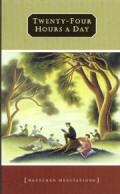
Twenty Four Hours A Day Softcover
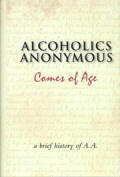
Alcoholics Anonymous Comes of Age Hardcover
A brief history of A.A.
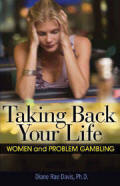
Taking Back Your Life: Women and Problem Gambling

A Biography of Mrs. Marty Mann - Second Edition
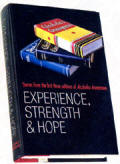
Experience Strength and Hope
Stories from the First Three Editions of Alcoholics Anonymous

The Roots of Alcoholics Anonymous

The 7 Points of Alcoholics Anonymous
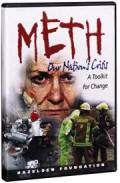
Meth Our Nation's Crisis Toolkit
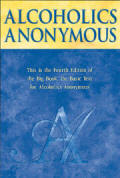
Alcoholics Anonymous Big Book 4th Edition Hardcover

Practice These Principles And What Is The Oxford Group?

Women Pioneers in 12 Step Recovery
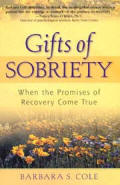
Gifts of Sobriety
When the Promises of
Recovery Come True

Stepping Stones To Recovery For Men


Dealing with Depression in 12 Step Recovery
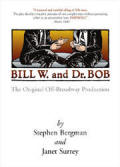
Bill W and Dr Bob DVD
The Original Off-Broadway Production

The Twelve Steps And Dual Disorders
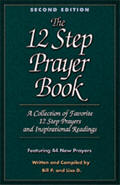
The 12 Step Prayer Book Second Edition Volume
1
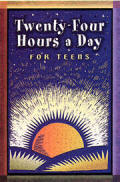
Twenty Four Hours
a Day for Teens

Daily Reflections
A Book of Reflections by A.A. Members for A.A. Members
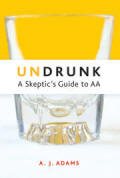
Undrunk
A Skeptics Guide to AA
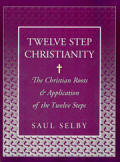
Twelve Step Christianity
The Christian Roots & Application of the Twelve Steps
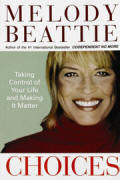
Choices
Taking Control of Your Life
and Making It Matter

Stepping Stones To Recovery For Women
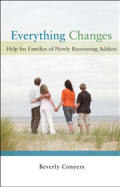
Everything Changes
Help for Families of Newly Recovering Addicts
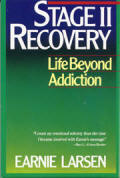
Stage II Recovery
Life Beyond Addiction
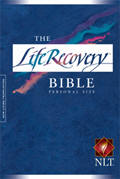
Life Recovery Bible Personal Size 2nd Edition

![]()
Gratitude
Art Print
Rein, Gail
Buy at AllPosters.com
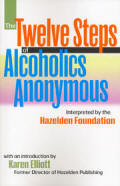
The Twelve Steps Of Alcoholics Anonymous
Interpreted
By The Hazelden Foundation
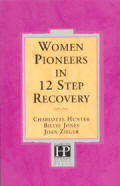
Women Pioneers in
12 Step Recovery
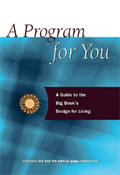
A Program For You - A Guide To the Big Book's
Design for Living
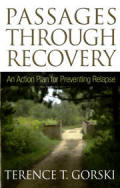
Passages Through Recovery
An Action Plan for
Preventing Relapse
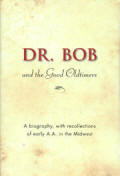
Dr Bob and the Good Old timers - Hardcover

![]()
Serenity Prayer and Waterfall
Art Print
Donnelly, Terry
Buy at AllPosters.com

